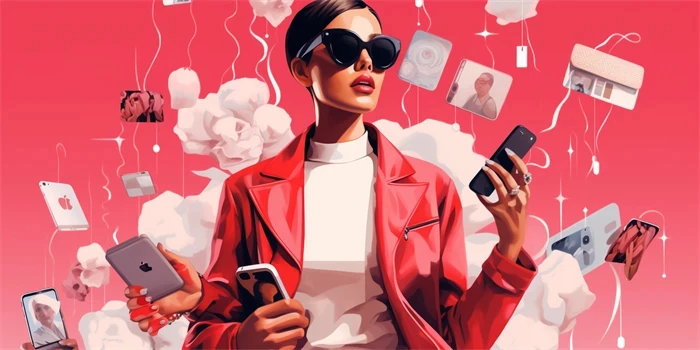Mental health is a critical aspect of overall well-being, encompassing an individual’s emotional, psychological, and social well-being. However, despite its significance, mental health issues often go undetected and untreated. This is where artificial intelligence (AI) comes into play, revolutionizing the future of mental health by enabling early detection and intervention. In this article, we will explore the various ways in which AI is reshaping the landscape of mental health.

1. Early Detection through Sentiment Analysis
AI-powered sentiment analysis algorithms can now analyze text and speech patterns to detect signs of emotional distress or mental health issues. By identifying subtle cues in language or tone of voice, these algorithms can help identify individuals at risk and prompt early intervention.
For example, the Woebot app utilizes natural language processing algorithms to engage in therapeutic conversations with users. It analyzes the user’s language and provides support and guidance, acting as a virtual mental health assistant.
2. Wearable Devices for Continuous Monitoring
Advancements in wearable technology and AI algorithms allow for continuous monitoring of physiological and behavioral data related to mental health. These devices can track heart rate, sleep patterns, movement, and even skin conductance?providing valuable insights into an individual’s mental well-being.
One such device is the Muse headband, which uses electroencephalography (EEG) to measure brain activity and provide feedback for stress reduction and meditation. By leveraging AI algorithms, it offers personalized recommendations for improving mental wellness.
3. Personalized Treatment Recommendations
AI algorithms can analyze vast amounts of data, including medical records, genetic information, and treatment outcomes, to develop personalized treatment plans. By considering individual characteristics and responses, AI can guide mental health professionals in selecting the most effective interventions for each patient.
The Clinical Decision Support System (CDSS) is an AI-powered tool that assists clinicians in making evidence-based treatment decisions. It integrates patient-specific data with clinical knowledge and research to recommend tailored therapeutic interventions.
4. Virtual Reality Therapy
Virtual reality (VR) technology combined with AI is transforming the field of exposure therapy for anxiety and phobias. VR environments allow individuals to confront and overcome their fears within a controlled and safe setting. AI algorithms can adapt the level of exposure based on the individual’s progress, enhancing the efficacy of treatment.
The software platform “Psious” offers a range of VR environments for therapeutic use, providing immersive experiences for patients undergoing exposure therapy. AI algorithms analyze patient responses and adjust exposure levels accordingly, accelerating the treatment process.
5. Online Peer Support Communities
AI-powered online platforms and chatbots are facilitating the creation of supportive communities for individuals with mental health concerns. These communities offer a safe space for individuals to connect with others facing similar challenges, share their experiences, and provide mutual support.
The app “7 Cups” utilizes AI chatbots to connect individuals in need of emotional support with trained listeners. These chatbots provide empathetic responses and help individuals develop coping strategies, promoting mental well-being and a sense of belonging.
6. Identifying Patterns and Predicting Risk
AI algorithms can analyze large datasets and identify patterns associated with specific mental health conditions. By analyzing factors such as social media posts, demographic data, and lifestyle choices, AI can predict an individual’s risk of developing certain mental health disorders.
Researchers at the University of Vermont used machine learning algorithms to analyze Instagram posts and identify individuals at risk of depression. By identifying linguistic patterns and visual cues, the AI system achieved a significant accuracy in identifying individuals who had been clinically diagnosed with depression.
7. Automated Cognitive Behavioral Therapy
Cognitive Behavioral Therapy (CBT) is a widely recognized and effective treatment approach for various mental health conditions. AI-powered apps can now provide automated CBT interventions, making therapy more accessible and cost-effective.
The app “Woebot” offers AI-powered CBT interventions for individuals experiencing symptoms of depression and anxiety. It provides users with personalized lessons, mood tracking, and interactive exercises, allowing individuals to work on their mental well-being at any time and place.
8. Frequently Asked Questions
Q: Can AI replace human therapists?
A: AI can complement and assist human therapists, but it cannot fully replace the nuances and empathy provided by human interaction. AI-based tools and interventions can significantly enhance accessibility and support, but human therapists play a crucial role in building therapeutic relationships and tailoring treatment plans.
Q: Is AI reliable in detecting mental health issues?
A: AI algorithms have shown promising results in detecting mental health issues, but they should not be considered a definitive diagnosis. They serve as screening tools, providing insights that can prompt further evaluation and intervention by mental health professionals.
Q: Is there a risk of privacy breaches with AI-powered mental health tools?
A: Privacy and security are legitimate concerns in the digital age. AI-powered mental health tools must adhere to stringent privacy regulations and data protection measures. It is crucial to choose reputable platforms and review their privacy policies before sharing personal information.
Conclusion
The future of mental health is promising with the integration of AI technologies. Early detection, personalized treatment recommendations, and accessible interventions are just a few of the ways that AI is revolutionizing mental healthcare. While advancements in AI can greatly benefit individuals in need, it is important to acknowledge the valuable role of human therapists and maintain a balanced approach that combines the power of AI with human empathy and understanding.
References:
1. Woebot – Your AI-powered mental health assistant. (2021). Retrieved from https://woebot.io/
2. Muse – Meditation and sleep made easy with brain-sensing headband. (2021). Retrieved from https://choosemuse.com/
3. Clinical Decision Support System. (2021). Retrieved from https://www.ncbi.nlm.nih.gov/pmc/articles/PMC3473316/


